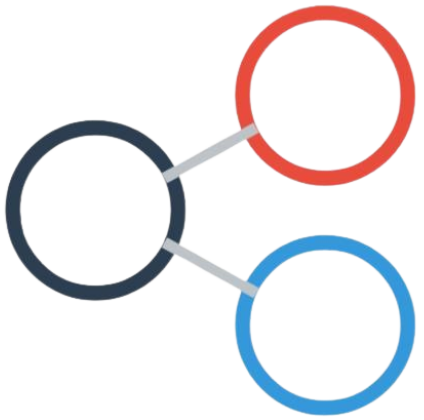Ever notice how a simple conversation can either move a project forward or stall it altogether? That’s the silent power of soft skills at work, often underestimated but undeniably game-changing in corporate environments.
Corporations rely on teams of people with diverse backgrounds and expertise. While technical prowess forms the foundation, it’s the ability to communicate, collaborate, and adapt that drives projects to completion. Soft skills aren’t a nice-to-have—they’re essential for lasting productivity.
This guide explores why nurturing soft skills through effective training benefits not only individuals but entire organizations. We’ll uncover practical insights and relatable examples to show how these skills fuel growth and build stronger workplaces.
Communication Skills: The Glue That Holds Teams Together
Communication keeps a business running smoothly, much like oil lubricates an engine. When colleagues express ideas clearly, misunderstandings shrink, and positive outcomes emerge with greater consistency in every department.
Think of a work project as a symphony. Every musician (employee) needs to hear cues precisely from the conductor (manager). A missed note or misunderstood instruction can change the whole performance, just as poor communication can derail a project.
- Email clarity reduces accidental missteps by ensuring expectations are understood before work begins.
- Effective meetings save time by ensuring focus, engaging all voices, and establishing clear next steps.
- Nonverbal cues help decode underlying concerns and foster greater empathy within discussions.
- Active listening avoids costly errors and builds trust across cross-functional teams.
- Presenting ideas succinctly helps colleagues grasp new initiatives quickly, smoothing the path to adoption.
- Reliable feedback channels encourage honest improvement and boost team morale for future projects.
Every point on this list reinforces how good communication habits collectively prevent costly delays, strengthen relationships, and contribute to the bottom line across teams.
Conflict Resolution: Turning Tension Into Opportunity
Consider two sales associates, each vying for a lead. Without conflict management skills, resentment may build, affecting teamwork beyond just the initial disagreement. However, resolve it skillfully, and they may collaborate, securing the client together and setting a standard for future cooperation.
Another instance involves an IT tech and an auditor clashing over project priorities. Instead of letting discord fester, the tech leverages empathy and compromise. Both gain perspective on each other’s demands and reach an agreement that fits the organizational goal best.
Picture a team meeting where two departments debate budget allocations. By using non-confrontational language and mutual goal setting, they uncover shared interests and innovate creative solutions—which supports both teams moving forward as partners, not rivals.
The ability to manage disputes constructively often leads to better ideas, stronger bonds, and an environment where innovation can flourish instead of stall due to hidden tension.
Benefits of Emotional Intelligence in Business Settings
Emotional intelligence (EQ) means more than just being in touch with your feelings. In business, it’s a force multiplier that impacts every interaction, decision, and outcome.
- Self-awareness enables employees to reflect calmly before reacting, reducing impulsive decisions that may negatively affect projects or client relationships. This contrasts with environments where emotions dictate hasty choices.
- Self-regulation helps managers navigate stress, so they avoid cascading negative moods down their teams—unlike workplaces where tempers rule, causing high turnover and low morale.
- Empathy drives better customer support. Imagine two support agents: one empathizes and solves complex issues, the other reads scripts monotonously. Clients notice the difference and reward empathic service with loyalty.
- Social skills enhance networking. A business development pro who connects authentically opens new opportunities, compared with a peer who struggles to build rapport and misses potential leads.
- Motivation keeps projects on track. Team members who inspire each other achieve more, while unmotivated teams stagnate and see results slip.
- Collaboration runs smoother. Colleagues who recognize and adapt to emotional cues avoid unnecessary friction—and projects complete faster than those littered with misunderstandings.
- Customer retention increases. When employees respond with emotional intelligence, they de-escalate difficult situations, contrasting companies that lose clients due to poor handling of feedback or complaints.
These benefits show that investing in EQ during corporate training doesn’t just foster happier teams—it directly impacts revenue and reputation, proving its ongoing value.
Adaptability at Work: Navigating Change Efficiently
Adaptability means thriving through changes—whether that’s shifting priorities, new technologies, or sudden market surprises. Compare two teams: one resistant to change and another flexible in adjusting strategies on the fly.
Picture an employee struggling with a newly implemented software system. If rigid, frustration grows, errors multiply, and productivity suffers. If adaptive, they seek resources, ask questions, and learn quickly—restoring project momentum within days, not weeks.
| Trait | Rigid Team | Adaptive Team |
|---|---|---|
| Reaction to New Tools | Resists adoption, slows workflows | Seeks trainings, asks questions |
| Response to Feedback | Defensive, reluctant to change | Open and eager to improve |
| Mood Under Pressure | Stressed, demotivated | Calm, collaborative |
The table highlights that adaptability isn’t just about skills—it’s a mindset. Companies that invest in fostering flexibility handle disruptions with less stress, faster innovation, and higher employee morale.
Why Problem-Solving Skills Elevate Organizational Performance
Problem-solving pushes organizations forward, enabling people to diagnose challenges and create solutions. It’s like a detective piecing together clues or a chef modifying a recipe to suit different dietary needs.
For example, in a retail environment, a floor manager who can calmly reroute traffic during a sudden rush prevents chaos and ensures smooth customer experiences.
In software development, a coder who creatively resolves a compatibility issue keeps the project on time and under budget, while less adept teams might hit costly roadblocks.
Problem-solving also involves asking the right questions: What can be done differently? How do outcomes compare if we try a new method versus sticking with tradition?
Collaboration Skills That Drive Results
- Respectful listening ensures everyone feels valued and all voices contribute to better solutions.
- Setting clear expectations from the start helps teams avoid confusion and busywork.
- Sharing credit creates trust, motivating colleagues to support each other’s targets.
- Flexibility encourages creative brainstorming sessions that fuel innovation and keep ideas flowing.
- Open feedback loops allow issues to surface quickly, so solutions are found before they escalate.
- Consistent check-ins help adapt strategies and make sure everyone stays aligned as projects evolve.
These collaborative habits form the backbone of high-performing teams. Organizations prioritizing such skills see projects completed more efficiently, reducing turnover and boosting employee satisfaction.
Recognizing team strengths and working with diverse approaches expands the tool kit available for solving challenges.
Decision-Making for Everyday Success
Effective decision-making can mean the difference between capitalizing on opportunities and missing them entirely. Imagine two managers faced with allocating resources for a tight-deadline project—one taps into soft skills, the other skips stakeholder input.
The first involves key team members, values different perspectives, and builds consensus. Results follow more seamlessly, with fewer setbacks and broader engagement. If the manager forgoes input, the team feels overlooked and productivity stalls.
Comparatively, a rushed decision requiring overtime can deflate morale, while a thoughtful choice saves both time and cost.
Scenario analyses show that practicing inclusive decision-making, powered by empathy and clear communication, consistently wins in achieving lasting business outcomes.
Resilience and Growth Through Effective Soft Skill Development
Picture organizations as gardens. Cultivating soft skills regularly gives teams deep roots for resilience and branching confidence for growth—even during storms of change or stress.
Imagine if companies ignored these skills. Projects would stall, communication lines erode, and innovation slow. By building resilience, businesses not only survive setbacks—they emerge stronger and ready for what’s next.
Now consider the difference for individuals: those who embrace continuous learning, adaptability, and feedback often rise to leadership faster, enjoying greater job satisfaction and longevity.
Conclusion: Building the Future With Soft Skills Training
Soft skills training shouldn’t be viewed as an add-on but as a pivotal investment. Their development paves the way for dynamic, supportive, and truly effective work cultures, helping businesses outpace competition.
Recalling the many analogies and examples, it’s clear that technical knowledge gets you in the door, but soft skills determine who rises in an organization.
Prioritizing areas like communication, adaptability, conflict resolution, and collaborative problem-solving helps teams weather challenges and seize opportunities.
The most successful companies recognize that every employee, from entry-level to executive, shapes organizational outcomes through these soft skills.
By placing value on personal development and continuous learning, organizations ensure a future where teams are resilient, agile, and ready to thrive together.

